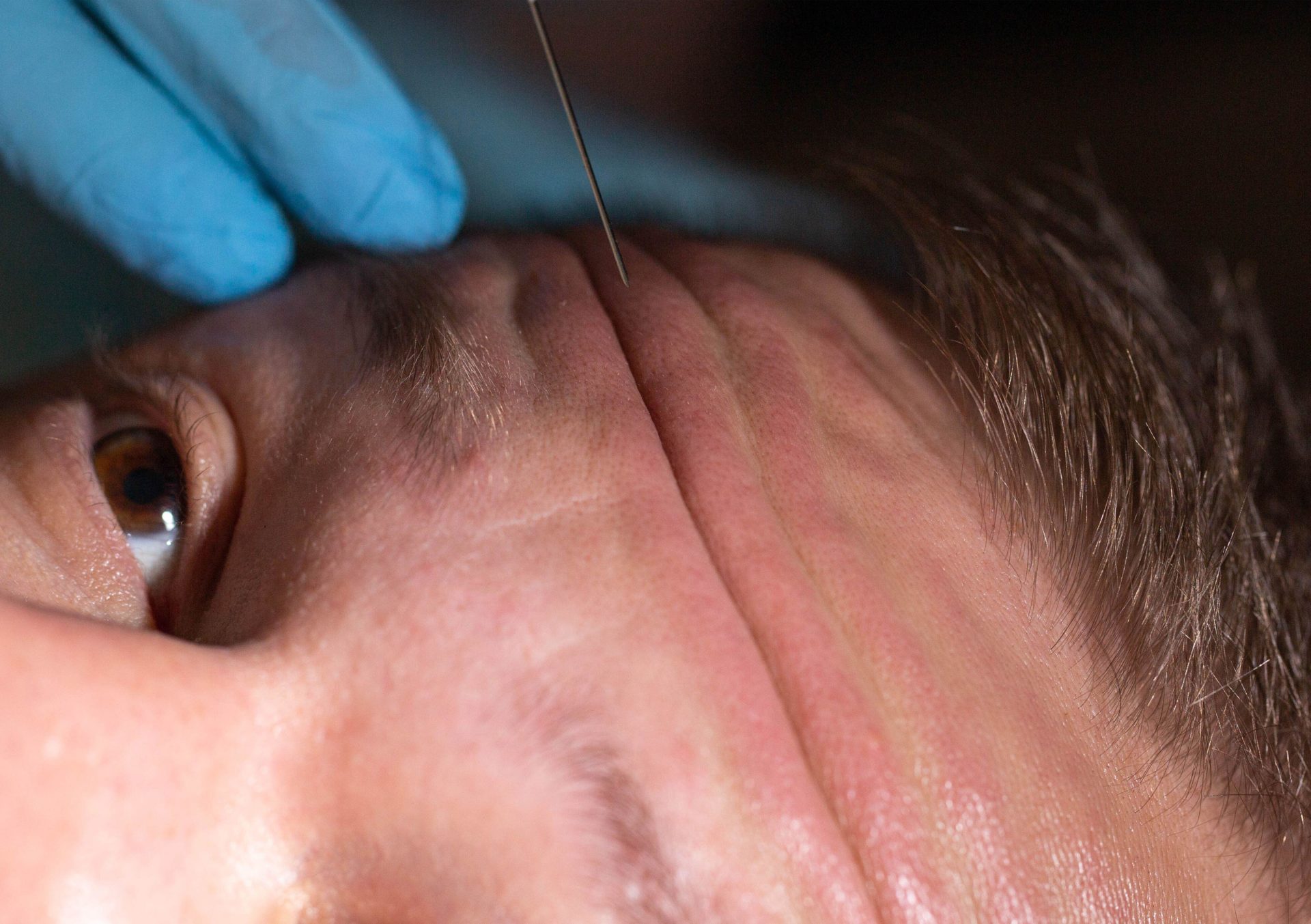People receiving unregulated Botox treatment are placing themselves at a “serious risk of harm”.
That’s the warning from the Irish Medical Council, who say that people could suffer issues including “infection, paralysis or life-threatening complications” from the injections.
Consultant Dermatologist at the Institute of Dermatologists Professor Caitriona Ryan said professionals don’t have “any idea” how common unregulated Botox is.
“Back in early 2024, an investigation showed that there have been all sorts of things flown into the country,” she told Newstalk Breakfast.
“From unregulated Botox from Korea and other places injected by non-medics.
“So, I think as a dermatologist and plastic surgeons, we’re all shocked – we didn’t realise how prevalent this was.
“I think we only know the tip of the iceberg really.”
 Doctor cosmetologist makes injections into the forehead against mimic wrinkles. Image: Henadzi Pechan / Alamy. 23 June 2021
Doctor cosmetologist makes injections into the forehead against mimic wrinkles. Image: Henadzi Pechan / Alamy. 23 June 2021Prof Ryan said that as the cosmetic industry continues to boom, people are beginning to seek out cheaper treatments.
“There’s two aspects of this,” she said.
“There’s people who shouldn’t be administering the injections – they're not medically trained [on] the anatomy, the muscles, that sort of thing.
“What’s more concerning to me is the actual Botox; that [the product itself] isn’t traceable.”
Prof Ryan pointed to 38 cases of botulism which occurred in the UK over the summer as being a direct result of this issue.
Botulism is a rare but serious illness that occurs when a toxin from the Clostridium Botulinum bacteria attacks the nervous system, leading to muscle paralysis.
A purified and diluted version of Botulinum is used in Botox to relax muscles.
However, if the Botulinum escapes the injection site and enters the blood stream, it can spread to other parts of the body and cause botulism.
Legal consequences
“The biggest thing, obviously, is paralysis,” Prof Ryan said.
“We’ve got such a complex anatomy, that’s why you want somebody who’s really trained.
“So, injected in the wrong place, somebody can have a facial paralysis – that will, in fairness, wear off after three to six months.
“But nobody wants to skimp on their Botox and end up walking around looking like they’ve had a stroke for months and months.”
According to Prof Ryan, the best way to tackle the issue should be to introduce legal ramifications for any individual found to be injecting Botox without the proper qualifications.
Main image: Cosmetician gives face botox injections to patient. Image: Sergiy Tryapitsyn. 27 August 2019









